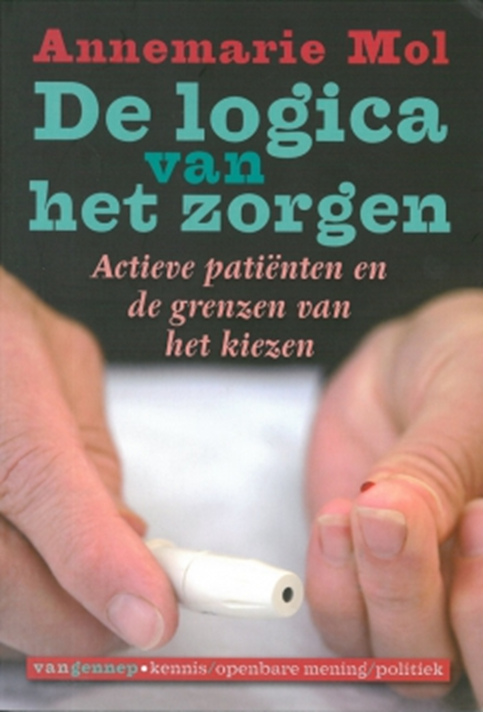
Two months ago I had an email from Ben Fox of forauthors@shepherd.com – a new venture looking to promote books in a new way. See Shepherd.com.
The idea is to feature a book by an author and then get her or him to list five books that have particularly influenced them – centered on a topic of their choosing and linked into their work. Newspapers have been doing this for decades – they figure readers will think that if an author endorses something it must be pretty good.
A month ago The Best Books on Medical Treatments Gone Wrong – appeared. Its very attractively done. Attractive enough to get cheeky and suggest a second list of Best Books – this time on What Medicine Should Be – which Ben agreed to.
See also RxISK – Best Books on medical treatments gone wrong
The new list The best books about how medicine should be is now up. See link – again very attractively done. The two Shepherd links contain links to where any of the above books or books below can be got – most are not books you hear about all that often.
The Best Books on Medical Treatments gone wrong should really have featured the book by me that appears on Best Books about how medicine should be – and vice versa. Hopefully this won’t confuse too many people.
The Logic of Care: Health and the Problem of Patient Choice
By Annemarie Mol
Why this book?
Every book by Annemarie Mol is good but The Logic of Care is simply the best book on what medicine should be. It is short, deceptively simple but leaves no hiding places. Everyone will be able to understand it in the same way from a teenager up through a Professor of Medicine to a Minister for Health but don’t expect any Ministers to admit to reading it any time soon. Mol outlines a relationship-based rather than technology-based medicine. How do we ensure medical techniques help us to live the lives we want to live rather than force us to live lives that suit the companies that make the technologies want us to live? How do we care for people rather than service them?
(The Dutch cover of Logic is perfect but you have to read the book to realise this)
Fighting for Life
By S. Josephine Baker
Why this book?
Medicine loves stories about heroic men who made breakthroughs that have saved lives and given us the life expectancies we have today. It has never celebrated women and yet it was a woman, Josephine Baker, who in two decades starting in 1908, by focusing on antenatal and postnatal care, laid a basis for saving lives that has given us the life expectancies we have today. She did so against fierce opposition from doctors who argued that creating conditions that make infants and children healthy would be bad for medical business. Now that life expectancies are falling, and were falling before Covid, we desperately need to recover Baker and her insights. Her book written in 1939 gives clear hints of how unimpressed she would likely be with today’s medical business.
The Hour of Our Death
By Philippe Aries
Why this book?
Modern medicine has dramatically extended life expectancies. But as our life spans extend, our fear of death grows. As our hope of living a long life and seeing our children survive grew, we became more rather than less anxious about losing out. We might have expected the opposite. Aries vividly illustrates how people viewed death as a part of life before the nineteenth century and how they reconciled themselves to it. He picks out 1886 as the point where Tolstoy in The Death of Ivan Illych recognized that medical advances were creating anxiety rather than hope. This book may make you less fearful of death. It will ask you whether you can now achieve serenity half as well as those before us did and whether medicine is bad for our sanity?
A Calculus of Suffering: Pain, Professionalism and Anesthesia in Nineteenth-Century America
By Martin S. Pernick
Why this book?
Most of us figure doing evil, even if good results, is not ethical but without this, there would be no medicine. Martin Pernick covers the discovery of anesthesia and the ethical dilemmas this new ability to save lives by poisoning people posed. Anesthesia is a technique and techniques are amoral. How do we ensure they enhance rather than diminish us? How do we avoid seduction into a sleep during which we can be cosmetically enhanced? Is there a limit to how many drugs we give children to manage their behaviour – just because we can? Treating and stopping are not the same as not treating. Pernick doesn’t tell us how to manage this calculus, but he makes us aware modern life involves more of a calculus than we might have thought.
Impure Science: Aids, Activism, and the Politics of Knowledge
By Steven Epstein
Why this book?
AIDS was the pandemic before Covid. Unlike Covid, it mobilized people to take the science and efforts to find a cure into their own hands – especially people on the fringes of society. Nothing like this had ever happened before. It appeared to mark a watershed where medicine would become a servant of the people rather than people being enslaved to its commercial priorities. Sadly this is not how things worked out. The discovery of Triple Therapy was a high point of modern medicine but we have gone downhill since then with few if any drugs saving lives the way Triple Therapy did. Impure Science shows you vividly what we are up against.
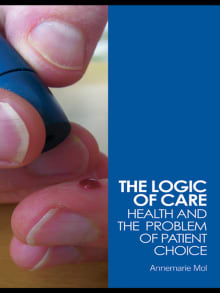
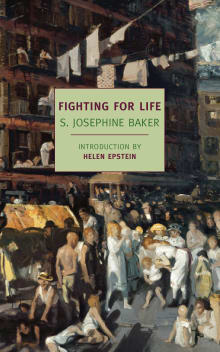
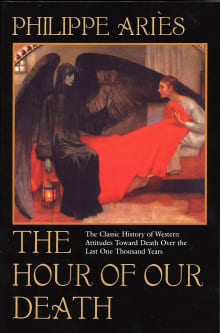
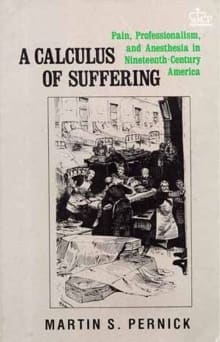
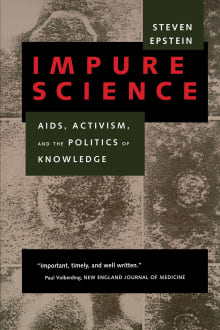
– and vice versa …
Forgotten Books
Forgotten Books Classic Reprint Series utilises the latest technology to regenerate facsimiles of historically important writings.
Careful attention has been made to accurately preserve the original format of each page whilst digitally enhancing the quality of the aged text.
A Sketch of the Life of Elizabeth T. Stone, and of her Persecutions
With an Appendix of Her Treatment and Sufferings While in the Charlestown McLean Asylum, Where She Was Confined Under the Pretence of Insanity
by
Elizabeth T. Stone
1842
This small and little gem of a book has 42 pages with tiny print as Elizabeth takes us through her story in her language of the time and fits nicely in to ‘how medicine should be’ as she takes us through her journey where she completely understands all the injustices that came her way and in her descriptions is so keen to tell and warn and it is all credit to her lamentations that she succeeds in how it should have been.
“that some powerful mineral medicine had been given to me, which had injured me, that I had been cruelly deceived. She described the medicine to be pills and a liquid, very dark and some colored resembling saffron; that it had injured my brain, and it had never ought to be given to me; and I had been injured by unkind treatment;
“In conclusion, before this work is attributed to insanity why will not the public demand an examination of the affairs and management of the McLean Asylum, and see whether my charges be true or false.”
In the spirit of Elizabeth, GSK has a new Logo
https://www.pmlive.com/pharma_news/gsk_unveils_its_brand_identity_as_it_demerges_from_haleon_1449786
…… and still feel warm and human”
https://www.creativereview.co.uk/wolff-olins-gsk-identity/
“shape environments that suit all users”, Wolff Olins adds.
“End of an Era’”
The GlaxoSmithKline or GSK logo, similar to that of Pfizer, comprises of a medicine tablet. Another theory states that the emblem actually symbolizes a heart with the company’s name inside the intimate, healthy glow of an orange palette, expressing the company’s care and love for its customers.
‘Hopefully this won’t confuse too many people’
The Shapeshifters…
Hi Annie,
Just greeting you because I always see you here.. Have a great day!
Hi Ana,
Nice to meet you here, in the best possible way.
Do you like the Sound of Elizabeth, and is it a book you would buy?
Do you have a favourite book of your own, that impressed you?
We are in amazing company.
Best wishes,
Annie
Hilary Mantel
Giving up the Ghost
https://www.theguardian.com/books/2003/may/04/biography.features
Giving up the Ghost offers to strangers and friends, and to her mother, the account of a life haunted by illness and medical incompetence, written in words that never fail her. She describes ‘an unlit terrain of sickness, a featureless landscape of humiliation and loss’.
Endometriosis is a condition in which cells migrate from the lining of the womb to other parts of the body: bladder, bowel, pelvis or even, in rare cases, to heart, chest wall and head. They bleed and scar tissue is formed. It is a condition that often ends in infertility and ‘not infrequently a hormonal disarrangement which shows itself as a severe premenstrual symptom’.
Mantel was 19 when it took hold. She was sent to a psychiatrist who diagnosed overambition. Anti-psychotic medication brought on counterfeit madness – akathisia – a terrifying side-effect. Mantel writes: ‘By the time I was 24, I had learned the hard way that whatever my mental distress – and it does distress one to be ignored, invalidated and humiliated – I must never, ever go near a psychiatrist or take a psychotropic drug.’
she acquired a persistent pain that led to destructive drugs and patronizing psychiatry,
https://www.goodreads.com/book/show/490618.Giving_Up_the_Ghost
Hilary Mantel, author of Wolf Hall trilogy, dies aged 70
Dame Hilary Mantel won the Booker Prize for Wolf Hall, and its sequel, Bring Up the Bodies. The conclusion to the trilogy, Mirror and the Light, was published in 2020 and was an instant number one fiction best-seller.